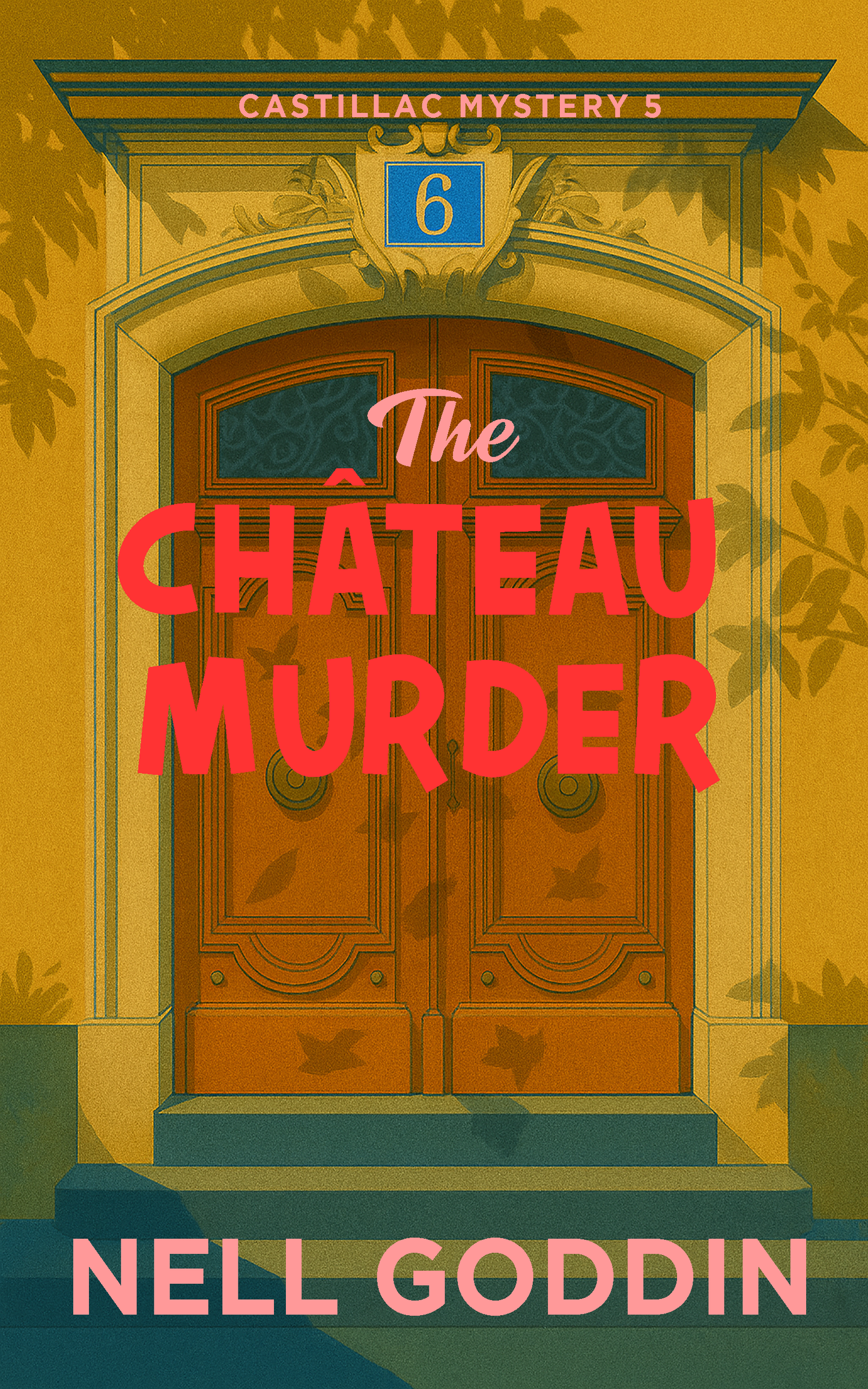Goddin Books
The Chateau Murder - Molly Sutton Mysteries 5 (audiobook)
The Chateau Murder - Molly Sutton Mysteries 5 (audiobook)
Book 5 in the Molly Sutton Mysteries series
Couldn't load pickup availability
- Listen to a sample of the audiobook
Immerse yourself in a French village
Cozy mystery
Read a description of the series
Read a description of the series
Boston girl Molly Sutton moves to a village in France to heal after a divorce--but then a girl goes missing. Follow the intrepid expat as she uncovers secrets and chases down murderers in charming Castillac, eating a few pastries along the way.
Series Reading Order
Series Reading Order
- The Third Girl
- The Luckiest Woman Ever
- ThePrisoner of Castillac
- Murder for Love
- The Chateau Murder
- Murder on Vacation
- An Official Killing
- Death in Darkness
- No Honor Among Thieves
- Eye for an Eye
- Bittersweet Oblivion
- Seven Corpses All In A Row
- Madam Tessier Knows All
Money-back guarantee if you're not satisfied! :)
- Buy audiobooks
- Get email from Bookfunnel with download link for audiobooks
- Download and listen on the bookfunnel app
A dead Baron. A missing emerald. And way too many suspects.
Amateur sleuth Molly Sutton has her hands full this time! Shut out of Castillac’s latest murder case and running out of money, she’s praying for a brilliant scheme or at least some dumb luck to strike. Believing good food can be the solution to almost any problem, she comes up with a culinary idea designed to stave off financial disaster—and finds that even a perfect meal can end up a flop.
As for the poor late Baron, once Molly manages to get inside the Château, she quickly pokes her nose where it doesn’t belong. But looking for clues and uncovering secrets is a risky business, and this time Molly ends up with her own life in danger.
Share

Audiobooks in the Molly Sutton Series
-
The Third Girl-Molly Sutton Mysteries 1 (audiobook)
1 reviewRegular price $11.99 USDRegular priceUnit price / per$16.99 USDSale price $11.99 USDSale -
The Luckiest Woman Ever - Molly Sutton Mysteries 2 (audiobook)
11 reviewsRegular price $11.99 USDRegular priceUnit price / per$16.99 USDSale price $11.99 USDSale -
The Prisoner of Castillac - Molly Sutton Mysteries 3 (audiobook)
4 reviewsRegular price $11.99 USDRegular priceUnit price / per$16.99 USDSale price $11.99 USDSale -
Murder for Love-Molly Sutton Mysteries 4 (audiobook)
3 reviewsRegular price $11.99 USDRegular priceUnit price / per$16.99 USDSale price $11.99 USDSale -
The Chateau Murder - Molly Sutton Mysteries 5 (audiobook)
2 reviewsRegular price $11.99 USDRegular priceUnit price / per$16.99 USDSale price $11.99 USDSale
I’ve grown very fond of the Molly Sutton Mysteries and look forward to each new book in the series. They are all charming cozy mysteries. The Chateau Mystery: Book 5 was no exception. As always, Goddin wove a mystery into and around the daily lives of the residents of the French village of Castillac. This time, Molly split her time between a murder investigation and several ventures aimed at saving her from financial doom. I love the details of village life and the reoccurring characters. The Chateau Mystery did not disappoint!
Another fun read with Molly to the rescue. A few grammer/spelling errors, but forgivable. Love all the characters. A little disappointed that Molly's love interest was absent....but one's heart grows fonder perhaps with Ben's potential return.






